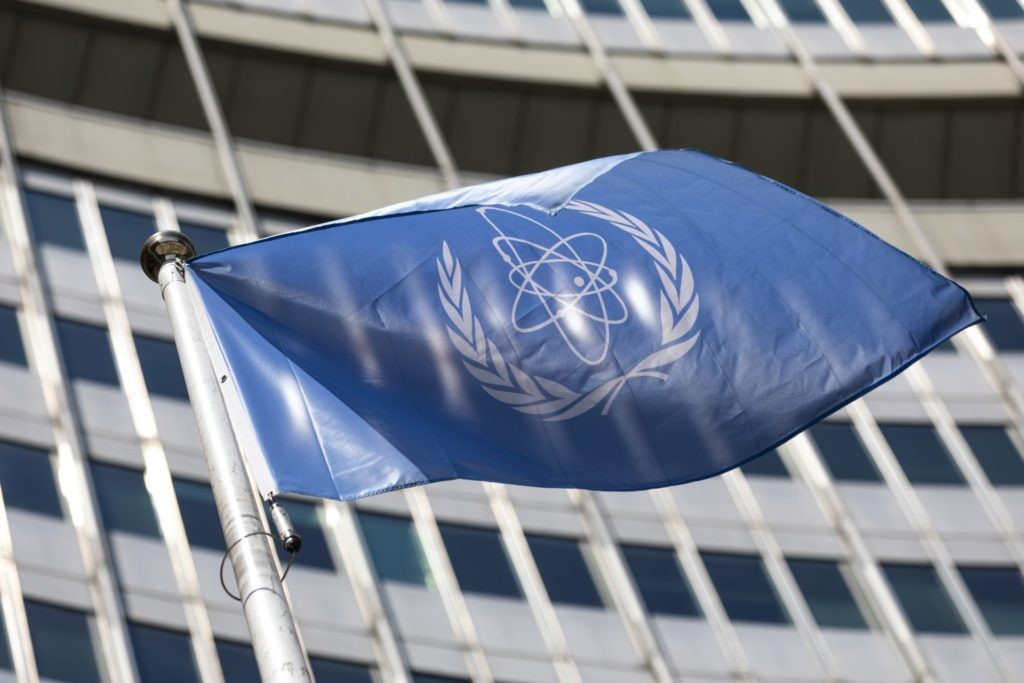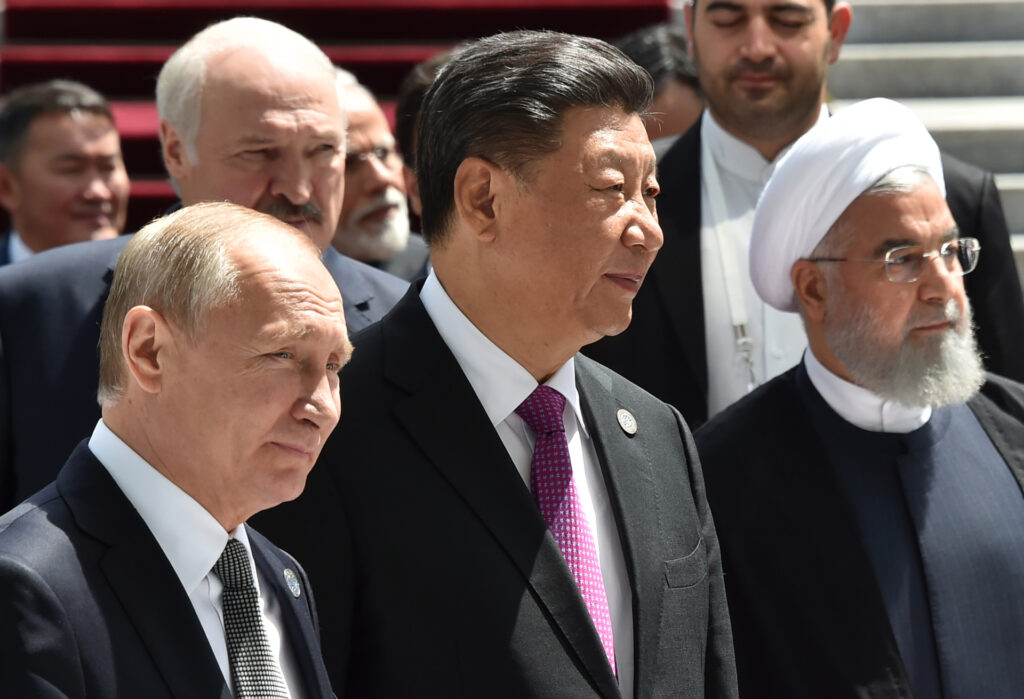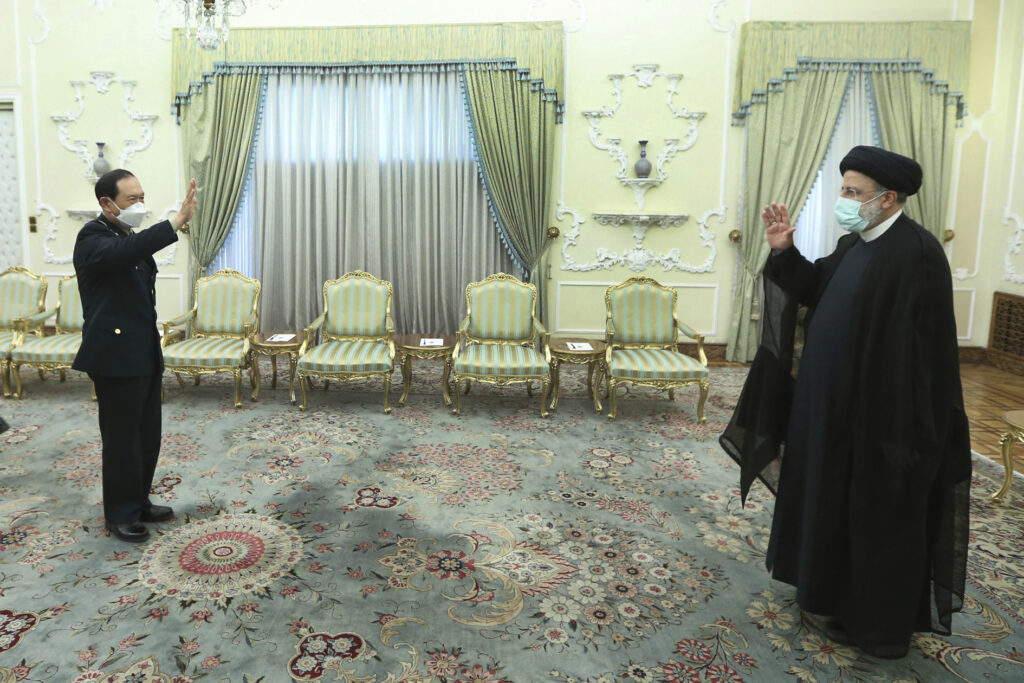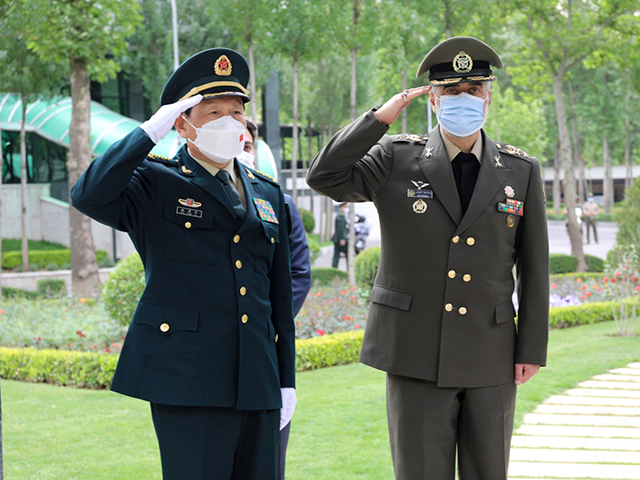The Iran nuclear deal appears all but dead this week, with everyone from the Biden administration to European diplomats denouncing Iran for making outrageous demands and refusing to cooperate with the International Atomic Energy Agency (IAEA).
China, however, pressed the United States to accept those Iranian demands at a meeting of the IAEA Board of Governors on Wednesday.
As reported by China’s state-run Global Times, the deputy head of China’s mission to the United Nations, Wang Chang, argued that America should yield to Iran’s demands and “promote an early deal” because the U.S. was the “originator” of the “crisis.”
Wang did not think Iran needed to give an inch on anything, because pressuring Tehran to make concessions “would not help resolve the outstanding issues or de-escalate the current crisis.”
The Chinese diplomat was especially dismissive of the complaint that Iran refuses to answer questions from the IAEA about uranium traces discovered at three undeclared nuclear sites.

International Atomic Energy Agency (IAEA) flag at the entrance of the Vienna International Center in Vienna. (AP Photo/Lisa Leutner)
“It is important to note that Iran’s outstanding safeguards issues point to possible nuclear activities that took place decades ago, if at all. There is neither urgency nor proliferation risk involved. Besides, the issue of the possible military dimensions of Iran’s nuclear program was already concluded in 2015,” Wang said.

Russian President Vladimir Putin, Chinese President Xi Jinping and Iran’s President Hassan Rouhani walk as they attend a meeting of the Shanghai Cooperation Organisation (SCO) Council of Heads of State in Bishkek on June 14, 2019. (VYACHESLAV OSELEDKO/AFP via Getty Images)
China and Russia were the only members of the 35-nation IAEA Board of Governors who opposed a June 8 resolution expressing “profound concern” over Iran’s lack of cooperation with inspectors.

In this photo released by the official website of the office of the Iranian Presidency, President Ebrahim Raisi, right, and China’s minister of national defense Gen. Wei Fenghe greet at the start of their meeting at the presidency office in Tehran, Iran, Wednesday, April 27, 2022. (Iranian Presidency Office via AP)
On Wednesday, two-thirds of the IAEA governors voted in favor of a non-binding statement introduced by the U.S., U.K., France, and Germany that pressed Iran to immediately explain the uranium traces.
Iranian President Ebrahim Raisi on Friday repeated his demand for unconditional and “lasting” removal of all sanctions against Iran, and for the investigation of the uranium traces to be dropped.
Raisi questioned U.S. “sincerity” for reviving the nuclear deal, complaining that the U.S. is imposing new sanctions against Iran during negotiations. The two most recent sanctions were in response to Iran selling military drones to Russia, and Iranian state-linked hackers launching a massive cyberattack on Albania.
The Financial Times on Friday argued that Iran may have overestimated the desperation of the Biden administration to restore the nuclear deal, especially with the U.S. midterm elections approaching, the White House nervous about looking weak again after a string of foreign policy disasters, and U.S. allies across the Middle East expressing apprehension about what the terror masters of Tehran might do with the financial windfall from a restored deal:
There is a palpable sense of relief in some parts of the Middle East, particularly Lebanon and Iraq, where many suffer the violence of Iran’s proxy militias. There is incessant talk in Beirut and Baghdad about the billions of dollars that would be released to Tehran if sanctions are lifted, and how much that would boost both its hard and soft power. Iran has been stung by the backlash against its influence in Iraq — new funds would help appease disgruntled allies. In Lebanon, where the economy has been in freefall for the past three years, there’s been more vocal criticism of Hizbollah for failing to provide basic necessities to its supporters.
Analysts told CNBC on Tuesday that China’s enthusiasm for restoring the nuclear deal is highly self-centered, because Beijing needs sanctions lifted before it can expand its economic relationship with Iran.
“Chinese producers are highly dependent on exports to the West, for which they must observe U.S. unilateral sanctions, no matter how much they assure their Iranian counterpart that they consider them unfair,” Virginia Tech economics professor Djavad Salehi Isfahani explained.

COMMENTS
Please let us know if you're having issues with commenting.